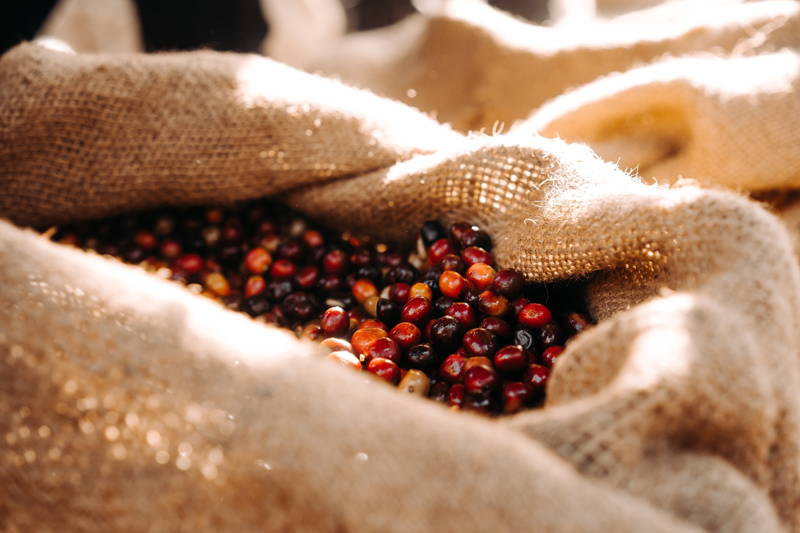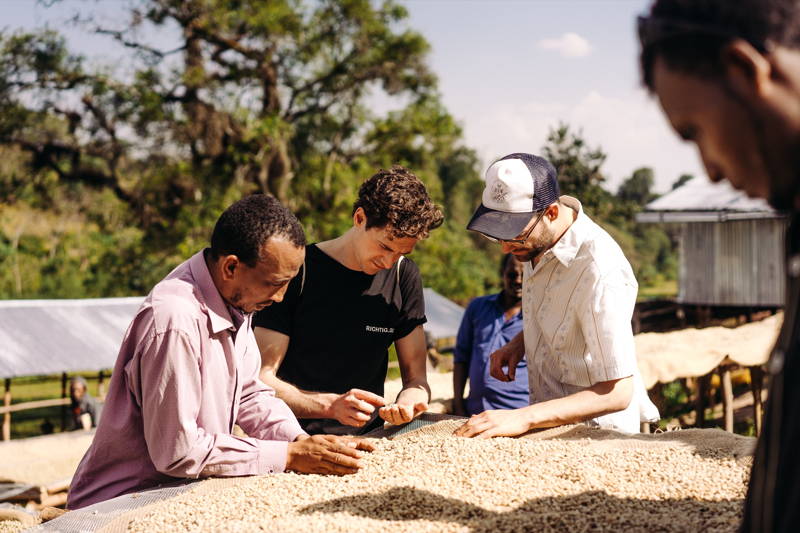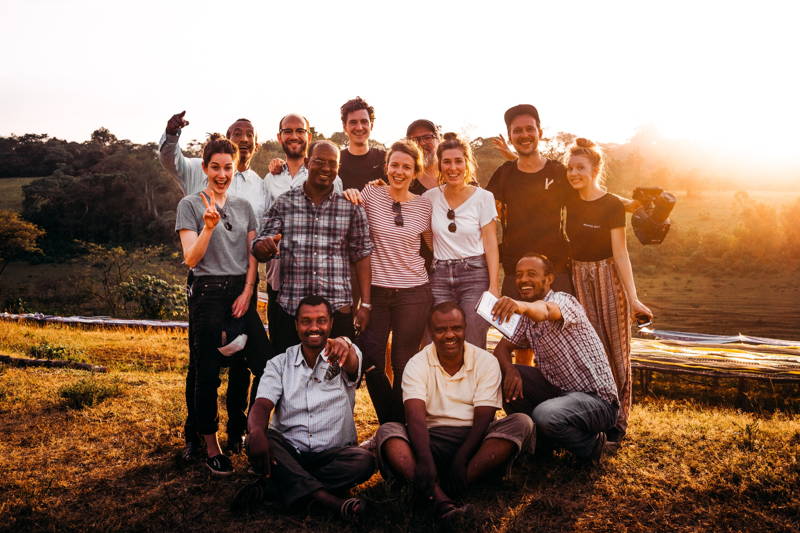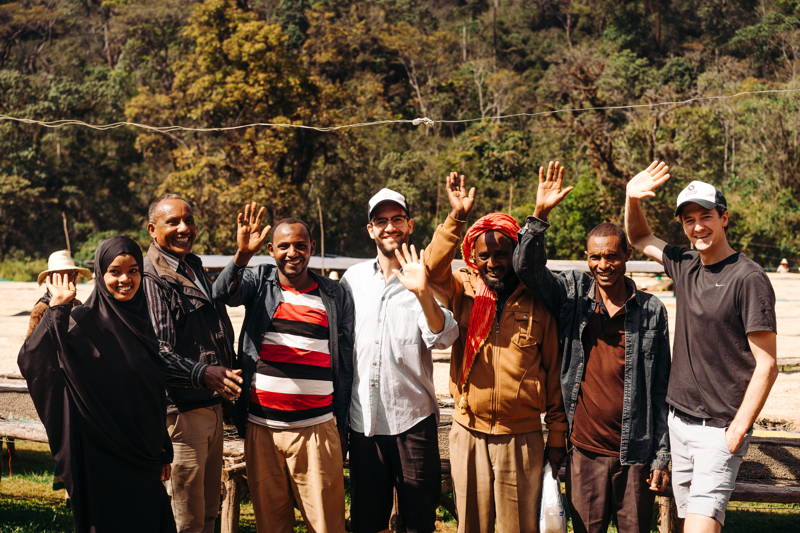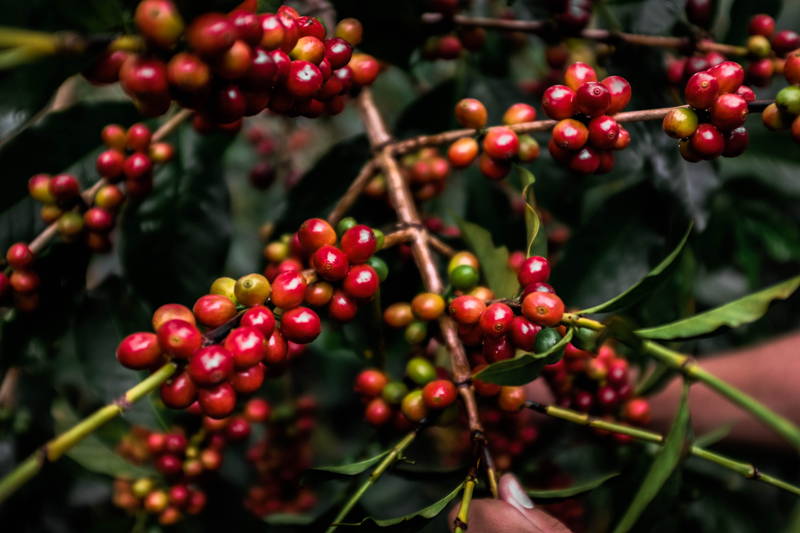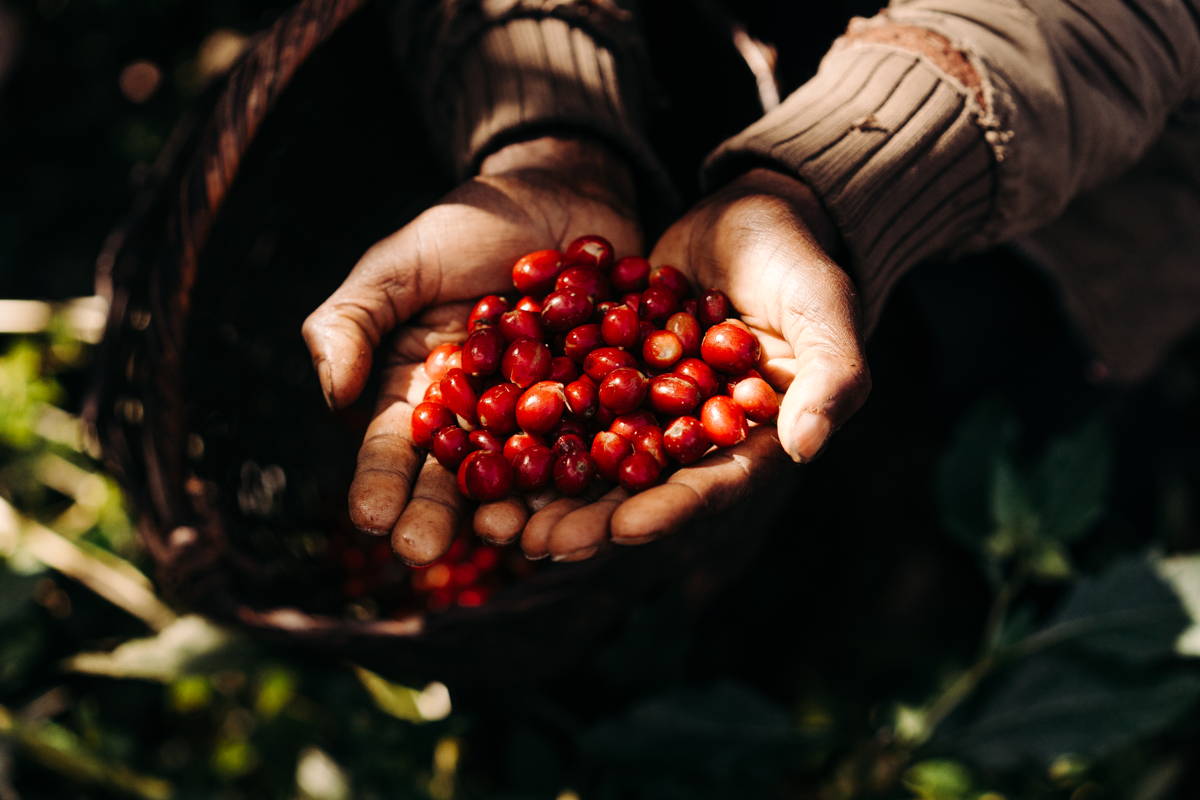
Education and quality training for 10,000 coffee farmers in Ethiopia
With your coffee purchase, you contribute to improving the living conditions of 10,000 coffee farmers and their families. 1 € per kilogram of coffee sold goes to this project! The goal? Better quality and higher income through education and quality training.
We will accompany 15 cooperatives over three harvest cycles until 2020. 10,000 coffee farmers and their families will be supported in coffee cultivation and quality improvement in order to achieve a higher price for their coffee and thus a higher income.
The price of the coffee is set based on quality. This is evaluated in cuppings by independent experts from the Ethiopian Coffee Exchange. The higher the quality of the coffee, the higher the selling price and, by analogy, the farmers generate higher income.
Short and neat:
- Project volume: 250.000 €
- Region: Jimma Zone, in the west of Ethiopia
- Cooperatives: 15 cooperatives in the woredas of Seka, Mana, Goma, Gera and Gumay
- Geo-coordinates: 36.81 oE to 36.47 oE; 7.56 oN to 7.91 oN
- Beneficiaries: over 10,000 coffee farmers
- Implementation period: 2017 to 2020
The project consists of 4 parts
1. Building of washing stations
With their own washing stations, the cooperatives have the possibility to wash their coffee themselves or to produce „washed“ qualities. Washing the coffee cherries is an important part of the processing. Washed coffees achieve a significantly higher yield when sold, i.e. if the cooperative carries out this processing step itself, an important part of the value creation takes place within the cooperative and the cooperative can achieve a significant increase in income.
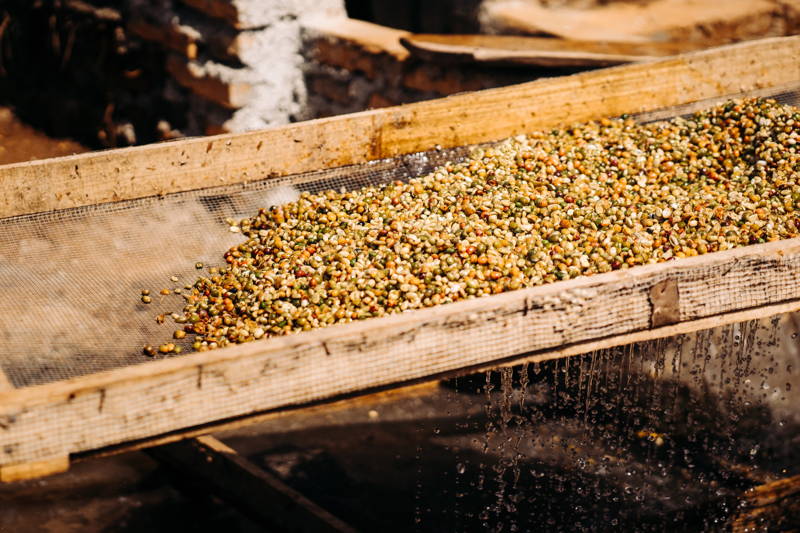
2. Education and support in coffee processing
The farmers receive training and knowledge transfer in the area of coffee processing. The processing of the coffee cherries at the washing station plays a central role in the final coffee quality. Here, a careful working method is important. The coffee beans must be correctly separated from the cherry, fermented to the right degree and finally carefully dried. The cooperatives receive regular training and are assisted daily by a consultant during the harvest period to ensure the best possible processing at the washing stations.
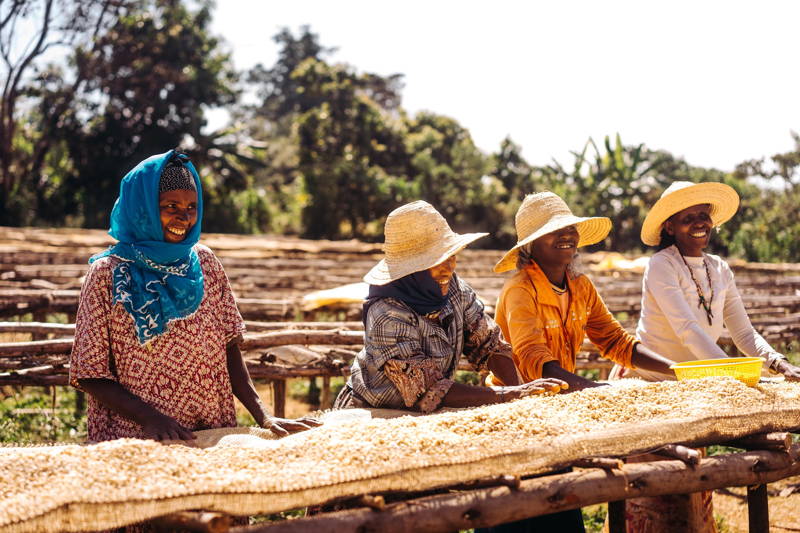
3. Support in business planning
One challenge for the cooperatives is the preparation of a business plan for the harvest. In the run-up to the harvest, numerous points have to be defined, such as the question of how much coffee is to be produced. From this, it must be calculated, among other things, how much working capital must be taken out as a loan or how many drying beds must be purchased – or how many employees should be hired at the washing station for the harvest. The cooperatives receive support and knowledge transfer with regard to these complex questions and calculations.
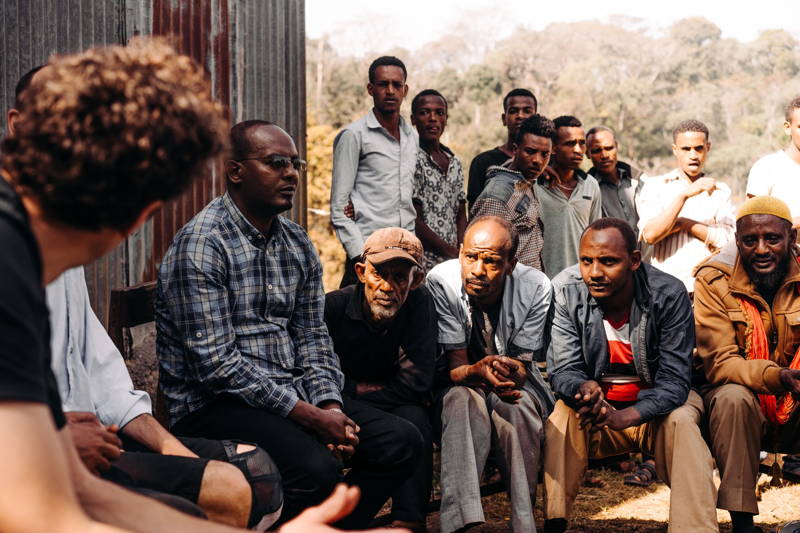
4. Increasing the productivity of coffee plants.
Although the ecological conditions are ideal for coffee cultivation in this region, the productivity of coffee plants is among the lowest in the world. On average, a coffee plant here produces only about 0.5 – 1 kg of green coffee. The problem is that the coffee plants are very old and are not cut back. This project aims to increase the productivity of the plants in two ways. Firstly, the farmers receive training on how to cut back their plants, and secondly, demonstration fields are used to show how old plants can be replaced with new young plants.
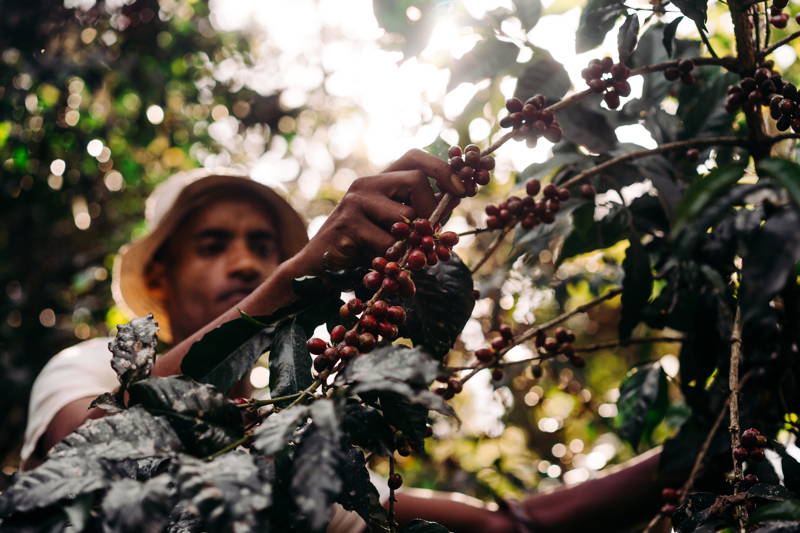
Our partner on site: CoQua
In cooperation with our local partner CoQua (= Coffee Quality), we have established a team in Ethiopia that implements these measures directly with the cooperatives. It consists of local coffee experts and agronomists who train and supervise the coffee farmers. Each cooperative is assigned an „Assistant Quality Adviser“ who lives in the farmers‘ village and can thus closely supervise and train the cooperatives around the year. After three years of the project, the cooperatives are able to pass on their knowledge and thus independently contribute to a positive development.
CoQua Team
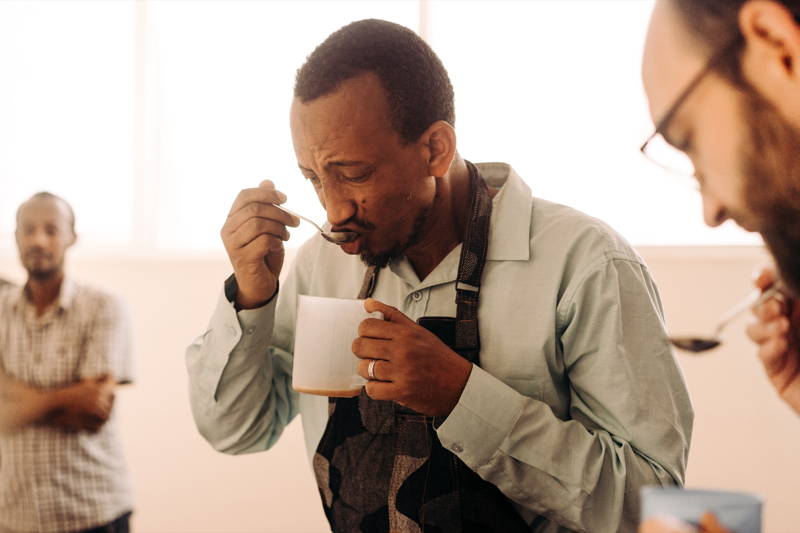
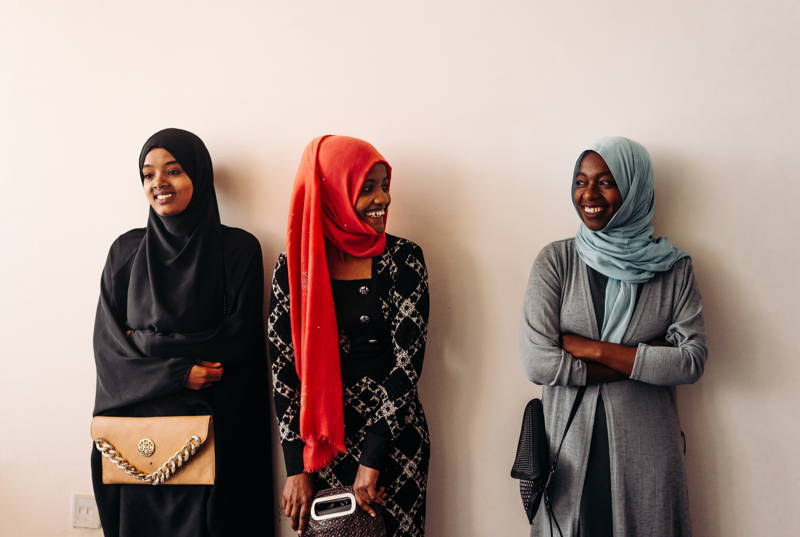
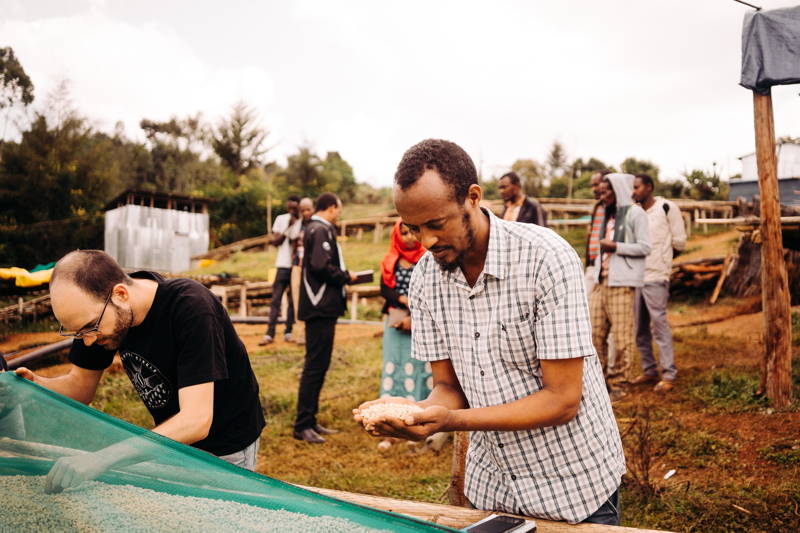
Why is this project important?
Coffee cultivation in Jimma has perfect conditions. The natural conditions such as cultivation altitude, soil quality and climate favor a high coffee quality. The association in coffee cooperatives is common in this region. The coffee farmers use a common central processing station and collectively have better market access.
There is a lack of technological equipment, access to professional advice on coffee cultivation, and an exchange for quality improvement
Nevertheless, the cooperatives are not able to fully realize their potential. There is a lack of technological equipment, access to professional advice in coffee cultivation and an exchange for quality improvement among the cooperatives. These difficulties, coupled with the growing threat of global and regional climate change affecting coffee farming and all natural resources in the region, are leading to deteriorating living conditions and even threatening the livelihoods of farmers and their families.
We as coffee buyers also benefit from the higher quality, as do other international roasters. For the farmers, this means that not only we, but also other coffee buyers, pay higher purchase prices. How do you say it? A win-win situation!
We at Coffee Circle have been active in Ethiopia for over seven years and know the coffee market, the conditions and not least the local people very well. We see great potential in this project to significantly increase the income of the farmers.
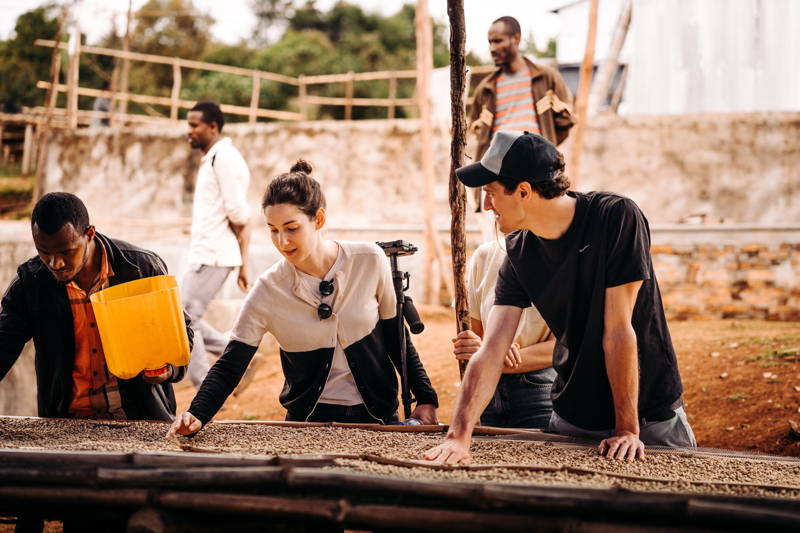
Here you can learn more about growing, harvesting and processing coffee
Progress is being made!
Update from February 2018: The first harvest is over!
The first harvest is in. Martin and Hannes were on site to evaluate together the first results of the last harvest in a big meeting of all cooperatives involved. In this first harvest year we could see significant improvements, but we also see a lot of potential for the next two years.
The exchange, the cupping of their own coffees, the success and the potential for improvement for the next years have strongly motivated the farmers. We also took a lot of impetus for the next two project years from this first big meeting. Some coffees far exceeded our expectations. We discovered some gems and cooperatives that are already producing top-notch coffee in our first year of working together. You can look forward to the coffees to come!
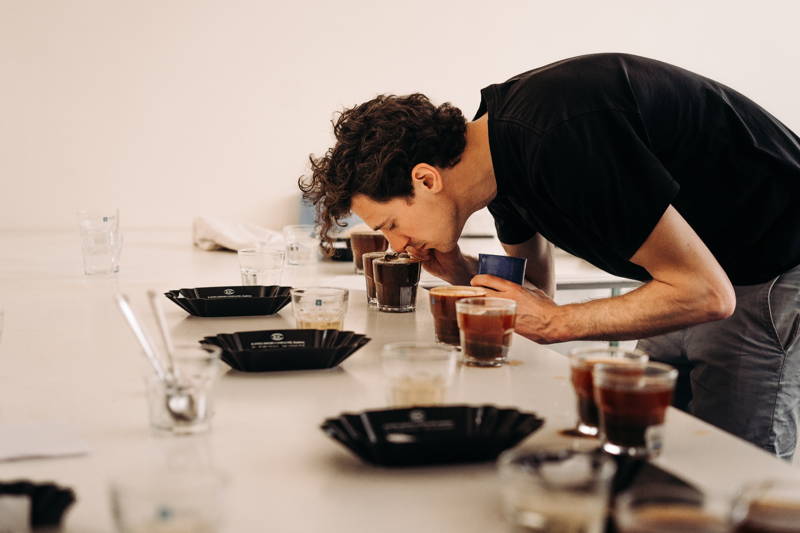
Try our delicious Ethiopian coffees
